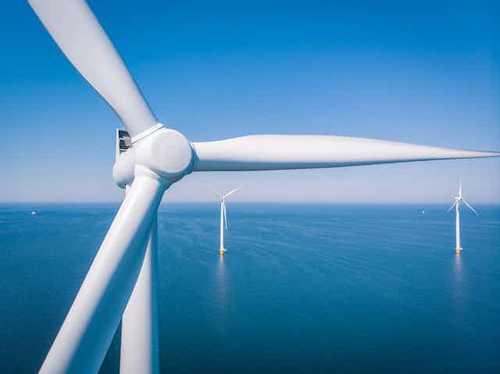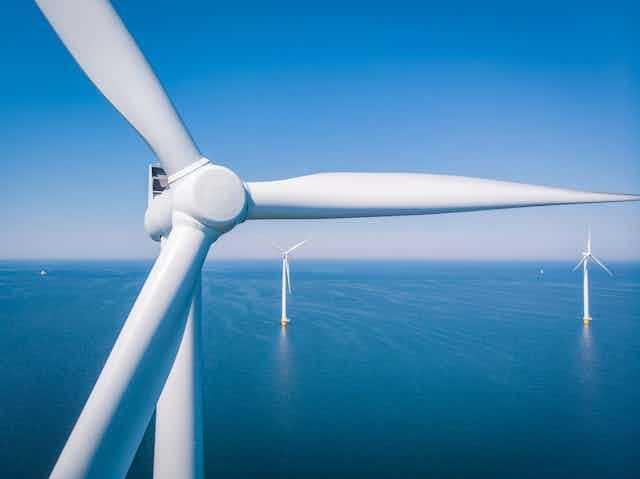Renewables are cheaper than ever – so why are household energy bills only going up?
Curated from: theconversation.com
Ideas, facts & insights covering these topics:
8 ideas
·271 reads
1
Explore the World's Best Ideas
Join today and uncover 100+ curated journeys from 50+ topics. Unlock access to our mobile app with extensive features.
Some of the causes of sky-high energy bills are unavoidable – there is little that most governments can do about the wholesale price of gas itself. Fossil fuel companies make huge investments that take years to mature, breeding periods of moderate prices followed by supply squeezes when prices rocket. Gas prices softened over the previous decade and the arrival of the pandemic in 2020 depressed demand.
4
95 reads
Regions without domestic gas supplies or which have depleted most of their gas reserves in recent decades get a lot of their gas by importing it.
European periphery countries, including the UK and many parts of the Mediterranean, assumed they could rely on global supplies of liquefied natural gas.
But tankers from the big gas producers such as Qatar can turn to Europe or Asia depending on who pays the highest price. Now there is a scramble, and Asian demand dominates.
4
34 reads
The knock-on effect to energy bills is amplified in the UK and other countries in Europe where electricity is organised through wholesale markets (in which generators bid to operate if the price is right) and in which most homes rely on gas for heating. Average home energy bills in the UK, which rose to over £1,200 (US$1,630) in 2021, are predicted to shoot up by around 50% in 2022. Up to half of the rise will come not from the gas you burn, but from the impact of gas on electricity prices.
4
30 reads
The last fixed-price government contracts offered for offshore wind energy in Britain – hardly the cheapest of renewables – were under 5p per kilowatt hour (kWh). That’s less than a quarter of the typical domestic tariff (what most people pay for electricity at home) that consumers are set to face in 2022. Households are paying for their electricity several times what it now costs to generate and transmit it from the cleanest energy sources at scale.
4
24 reads
The design of electricity systems has failed to catch up with the revolution in renewable energy. Competitive electricity markets, established in many countries to try and minimise costs, are actually suffering the greatest price rises. This is not because governments elsewhere use taxes to subsidise electricity (though some do), but because in wholesale electricity markets, the most expensive generator sets the price.
If renewables are now so much cheaper, why can’t consumers buy electricity directly from them and avoid paying the gas and carbon costs?
4
20 reads
A new golden age
Energy markets aren’t designed to cope efficiently with sources like renewables which cost a lot to build but far less than fossil fuels to run. Governments offer long-term, fixed-price contracts to generators for their output of renewable energy. This has been the biggest driver of investment, while competitive auctions of these contracts, to companies keen to build renewables, have slashed building costs the most.
4
25 reads
A decade ago, many energy experts projected a “golden age of gas ”. Countries are likely to continue burning gas for some years. But with the drive to cut emissions and the advent of cheap renewables, electricity is likely to dominate the energy system in future, powering heat pumps, electric vehicles and more. This golden age of electricity cannot arrive as long as the price of electricity is decided by fossil fuels and their carbon costs.
4
22 reads
When there isn’t enough renewable power being generated or stored – like on cold and calm winter days – the green power pool would buy electricity from the wholesale market for limited periods and quantities. To minimise those costs, contracts could give discounts to customers who can use electricity outside of peak times, or those with two-way electric vehicle connections who can sell power back to the grid.
It won’t happen overnight. It won’t cut bills tomorrow. But new electricity needs a new market – one which cuts energy bills at the same time as decarbonising the energy system.
4
21 reads
IDEAS CURATED BY
Decebal Dobrica's ideas are part of this journey:
Learn more about economics with this collection
How to develop a healthy relationship with money
How to create a budget
The impact of emotions on financial decisions
Related collections
Similar ideas
4 ideas
How a Carbon Tax Can Solve Climate Change
thebalance.com
3 ideas
What Businesses Must Do to Curtail Climate Change
insight.kellogg.northwestern.edu
5 ideas
What Determines Gas Prices?
investopedia.com
Read & Learn
20x Faster
without
deepstash
with
deepstash
with
deepstash
Personalized microlearning
—
100+ Learning Journeys
—
Access to 200,000+ ideas
—
Access to the mobile app
—
Unlimited idea saving
—
—
Unlimited history
—
—
Unlimited listening to ideas
—
—
Downloading & offline access
—
—
Supercharge your mind with one idea per day
Enter your email and spend 1 minute every day to learn something new.
I agree to receive email updates

